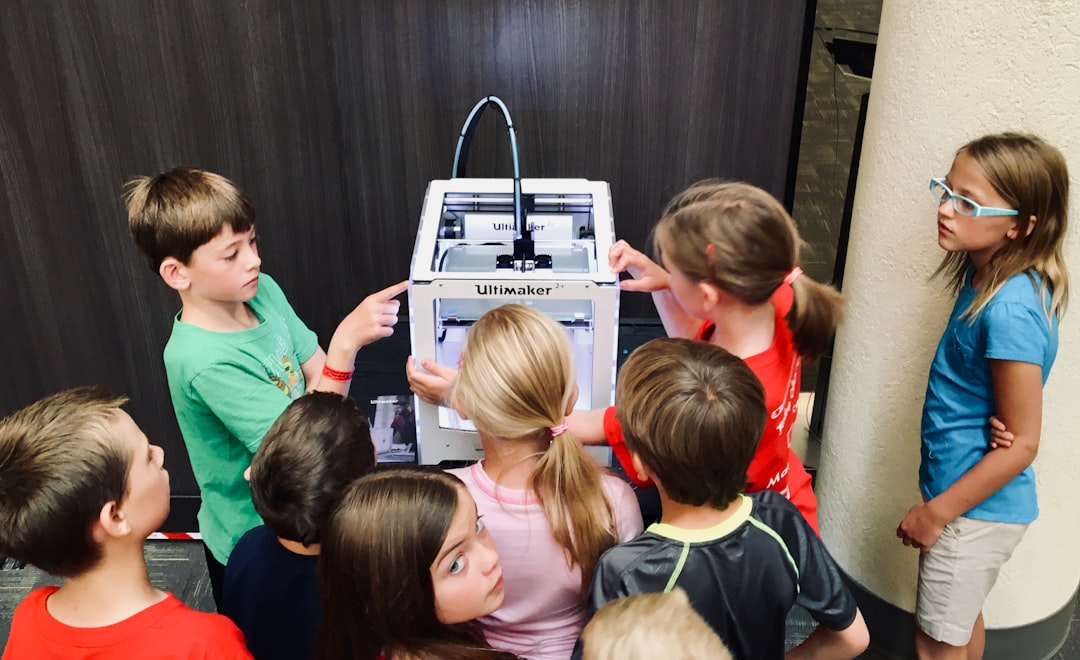As we continue to witness the rapid advancement of technology, it’s no surprise that artificial intelligence (AI) is making its way into various industries, including education. AI has the potential to revolutionize the way we teach and learn, offering personalized and adaptive learning experiences that cater to individual needs and abilities.
The impact of AI on education is already being felt, with schools and universities around the world implementing AI-powered tools and systems to enhance student outcomes. From personalized learning to curriculum design, AI has the potential to transform education as we know it.
But what exactly is AI, and how does it work in an educational context? In simple terms, AI refers to machines that are designed to perform tasks that typically require human intelligence, such as problem-solving, decision-making, and language processing. In education, AI can be used to analyze data, provide feedback, and tailor instruction to meet individual needs.
In this blog post, we’ll explore the various ways in which AI is impacting education, from the benefits of personalized learning to the ethical implications of using AI in the classroom. We’ll also discuss the future of AI in education and the need for continued innovation to ensure that technology is used in a way that benefits all learners. So, let’s dive in and explore the exciting world of AI in education!
The Benefits of Personalized Learning: How AI Can Improve Student Outcomes
As educators, we strive to provide the best learning experience for our students. However, with classrooms filled with students of varying abilities, interests, and learning styles, it can be a challenge to meet the needs of every individual. This is where AI can make a significant impact on education.
One of the most significant benefits of AI in education is its ability to personalize learning. AI can analyze data on students’ learning patterns, preferences, and strengths to create a customized learning experience. This means that students can receive individualized instruction that caters to their unique needs and learning style.
Personalized learning has been shown to improve student outcomes. A study by the National Education Policy Center found that students who received personalized instruction performed better than those who received traditional instruction. Additionally, personalized learning can help students who are struggling catch up to their peers and prevent advanced students from becoming bored.
AI can also provide teachers with valuable insights into their students’ progress. By analyzing data on students’ performance, AI can identify areas where students are struggling and provide teachers with recommendations on how to help them improve. This can save teachers time and allow them to focus on providing targeted instruction to their students.
Another benefit of personalized learning is that it can help students develop important skills such as critical thinking, problem-solving, and self-directed learning. By giving students more control over their learning, personalized learning can encourage them to take ownership of their education and become more independent learners.
Personalized learning is a powerful tool that can improve student outcomes and help students develop important skills. AI can play a critical role in delivering personalized learning by analyzing data on students’ learning patterns and providing customized instruction. As educators, it is essential that we embrace the potential of AI in education and continue to innovate to provide the best learning experience for our students.
This means that students can receive individualized instruction that caters to their unique needs and learning style.
The Rise of Adaptive Learning: How AI Can Tailor Instruction to Meet Individual Needs
Adaptive learning is a teaching method that tailors instruction to meet the individual needs of each student. This approach is gaining traction in the education world, thanks to the rise of artificial intelligence (AI). AI can analyze data on student performance, identify areas of weakness, and provide customized instruction to help students improve.
In traditional classroom settings, teachers are limited in their ability to provide individualized instruction to each student. With large class sizes, it can be challenging to identify the unique needs of each student and provide targeted instruction to address those needs. This is where adaptive learning comes in. By using AI, educators can provide personalized instruction that is tailored to the specific needs of each student.
One of the primary benefits of adaptive learning is that it can help students learn at their own pace. AI can identify when a student is struggling with a particular concept and provide additional instruction and resources to help them understand the material. This approach can help students feel more confident in their abilities and reduce the frustration that can come with falling behind their peers.
Another benefit of adaptive learning is that it can help educators identify areas where students are excelling. By analyzing data on student performance, AI can identify when a student is performing above grade level and provide additional challenges to keep them engaged and motivated. This approach can help prevent boredom and disengagement, which can lead to poor academic performance.
AI can also provide real-time feedback to students, which can help them identify areas where they need to improve. This feedback can come in the form of quizzes, assessments, or interactive activities. By providing immediate feedback, students can see where they need to focus their efforts and make adjustments to their learning strategies.
Overall, the rise of adaptive learning is a promising development in the education world. By using AI to tailor instruction to meet the individual needs of each student, educators can help students achieve their full potential. As AI continues to improve, we can expect to see even more innovative approaches to personalized learning in the years to come.
Another benefit of adaptive learning is that it can help educators identify areas where students are excelling.
The Role of AI in Assessments: Streamlining Data Analysis and Feedback
As the use of AI in education continues to expand, one area that has seen significant progress is assessments. Traditional assessments, such as exams and quizzes, are often time-consuming and can be subjective in their grading. However, AI has the potential to streamline the assessment process by automating data analysis and providing personalized feedback.
One way AI can improve assessments is through automated grading. AI algorithms can analyze student responses and provide instant feedback, allowing students to identify areas where they need improvement and giving teachers more time to focus on lesson planning and instruction. This can be particularly beneficial for large classes where grading can be a daunting task for teachers.
Another advantage of AI in assessments is its ability to provide personalized feedback. With AI, assessments can be tailored to each individual student’s strengths and weaknesses. This can help students better understand their own learning styles and identify areas where they need additional support. Additionally, personalized feedback can help teachers identify areas where they may need to adjust their instruction to better meet the needs of their students.
AI can also help with data analysis, providing teachers with insights into student performance and identifying areas where interventions may be necessary. By analyzing data from assessments, AI can help identify patterns and trends that may not be immediately apparent to teachers. This can lead to more targeted interventions and support for struggling students.
However, there are also concerns about the use of AI in assessments. Some worry that automated grading may not be as accurate as human grading, leading to unfair results for students. Additionally, there are concerns about the privacy of student data and the potential for bias in AI algorithms.
Despite these concerns, the potential benefits of AI in assessments are significant. By streamlining the assessment process and providing personalized feedback, AI can help improve student outcomes and support teachers in their instruction. As the use of AI in education continues to grow, it will be important to address these concerns and ensure that the technology is used in a way that is ethical, equitable, and effective.
However, there are also concerns about the use of AI in assessments.
The Future of AI in Curriculum Design: Creating Customized Learning Paths
As we continue to explore the impact of AI on education, we cannot overlook the potential for AI to revolutionize curriculum design. Currently, curriculum design is often a one-size-fits-all approach, with teachers using the same lesson plans and materials for all students in a given grade or subject. However, with the use of AI, we can create customized learning paths that are tailored to meet the unique needs and interests of each individual student.
Imagine a future where AI algorithms analyze data on student performance, interests, and learning styles to create personalized curriculum plans for each student. These plans could incorporate a variety of resources, including videos, articles, interactive activities, and assessments, all tailored to meet the specific needs and preferences of each student.
One of the main benefits of personalized learning paths is that they can help to increase student engagement and motivation. When students are able to learn at their own pace and in a way that is tailored to their interests and learning style, they are more likely to be invested in their education and to take ownership of their learning.
Additionally, personalized learning paths can help to address the issue of achievement gaps. By identifying and addressing individual student needs, AI can help to ensure that all students have access to high-quality education and that no student is left behind.
Of course, there are also challenges to implementing personalized learning paths through AI. One concern is the potential for bias in the algorithms used to create these paths. If the data used to inform the algorithms is flawed or biased, it could lead to further inequities in education.
Another concern is the need for teachers to be trained in how to effectively use AI and integrate it into their teaching practices. While AI has the potential to greatly enhance education, it is not a replacement for human teachers and their expertise.
Overall, the future of AI in curriculum design is exciting and full of potential. By leveraging the power of AI to create personalized learning paths, we can help to ensure that all students have access to high-quality education that meets their individual needs and interests. However, it is important that we address the ethical concerns and ensure that teachers are prepared to effectively integrate AI into their teaching practices.
These plans could incorporate a variety of resources, including videos, articles, interactive activities, and assessments, all tailored to meet the specific needs and preferences of each student.
The Ethical Implications of AI in Education: Addressing Concerns and Ensuring Equity
As with any technological advancement, the integration of AI in education raises ethical concerns that must be addressed. While the benefits of AI are numerous, it is important to consider the potential negative impact it may have on students and teachers alike.
One major concern is the potential for AI to perpetuate existing inequalities in education. If the algorithms used in AI are biased, they may reinforce existing prejudices and result in unfair treatment of certain groups of students. For example, if an AI system is trained on data that is biased against a certain race or gender, it may make decisions that disadvantage those groups.
Another concern is the potential loss of jobs for teachers. While AI can provide personalized instruction and feedback, it cannot replace the human connection and empathy that is crucial in education. It is important to ensure that the integration of AI in education does not lead to the loss of jobs for teachers or the devaluation of their profession.
Additionally, there are concerns around data privacy and security. AI systems collect vast amounts of data on students and their learning behaviors, which must be protected from unauthorized access or use. It is important to establish clear guidelines and regulations around the collection, storage, and use of student data to ensure their privacy and security.
Furthermore, there are ethical concerns around the use of AI in assessments. While AI can streamline data analysis and feedback, it may also perpetuate a culture of high-stakes testing and standardized assessments, which can have negative effects on student learning and well-being. It is important to consider the impact of AI on assessments and ensure that they are used in a way that supports student learning and growth, rather than simply measuring performance.
In addressing these concerns, it is important to prioritize equity and inclusion in the design and implementation of AI in education. This means ensuring that AI systems are designed with a diverse range of perspectives and experiences, and that they are regularly audited for bias and fairness. It also means involving teachers, students, and parents in the development and implementation of AI systems, and ensuring that they are transparent and accountable.
Overall, while the integration of AI in education has the potential to revolutionize the way we teach and learn, it is important to approach it with caution and consideration for the ethical implications. By addressing these concerns and ensuring equity and inclusion, we can harness the power of AI to improve education for all students.
It is important to establish clear guidelines and regulations around the collection, storage, and use of student data to ensure their privacy and security.
Conclusion: The Promise of AI in Education and the Need for Continued Innovation
As we have explored throughout this blog post, the impact of AI on education has the potential to revolutionize the way we teach and learn. From personalized learning that improves student outcomes to adaptive learning that tailors instruction to meet individual needs, AI has already made significant strides in improving education.
AI in assessments has also streamlined data analysis and feedback, making it easier for teachers to evaluate student performance and identify areas for improvement. And as we look to the future, AI in curriculum design holds the promise of creating customized learning paths that cater to each student’s unique needs and interests.
However, as with any new technology, there are also ethical implications to consider. We must address concerns and ensure equity in the implementation of AI in education. This includes ensuring that all students have access to the same technology and that biases are not perpetuated through the use of AI.
Despite these challenges, the promise of AI in education cannot be ignored. Continued innovation in AI technology will only serve to enhance the learning experience and improve student outcomes. As educators, it is our responsibility to embrace these advancements and use them to create a better future for our students.





